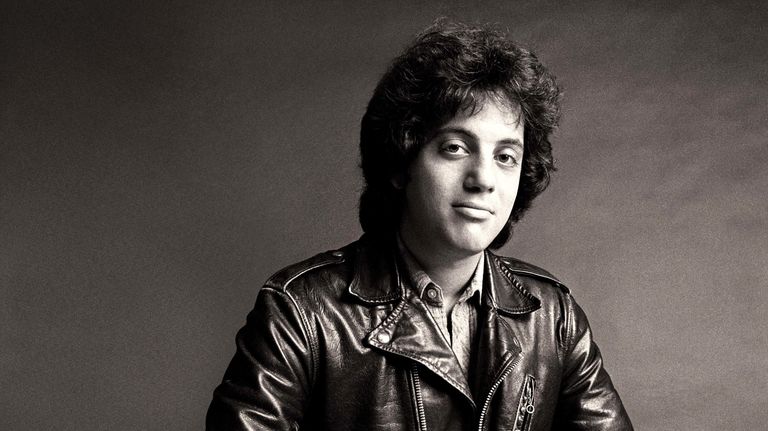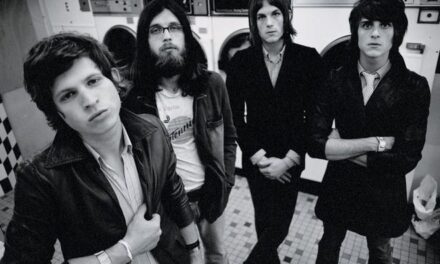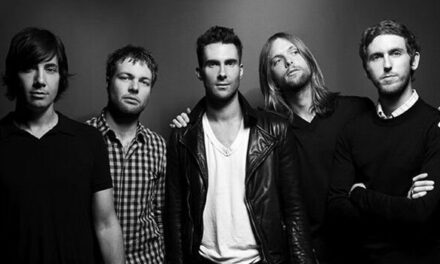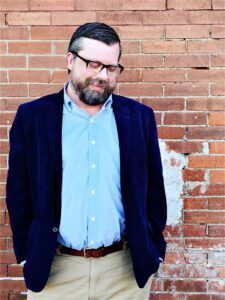

In the early 2000’s, Billy Joel had all but disappeared, except in tabloids, where he made frequent appearances for erratic behavior. At that point in time, Joel had given up on pop music and turned his attention toward classical, a short-lived endeavor that gave birth to one poorly received album. A huge Joel fan, I convinced the paper to let me write an essay about how the world still needed him – and his music. Originally published July 28, 2005.
Text:
Few pop musicians have managed to swerve around the roadblocks and potholes that dot the highways to stardom.
At some point or another, it seems, even the biggest of the big have their lulls, whether it was U2’s awful Pop album, Springsteen’s commercially disappointing Lucky Town and Human Touch, or a lot of Dylan’s work from the ’80s. The careers of Hootie & the Blowfish, R.E.M., Alanis Morissette — all one-time arena-fillers — have quieted down. A lot of bands, when their careers begin to circle the drain, just disappear. Or, like Kurt Cobain, Patsy Cline and John Lennon, they leave before they were supposed to.
Then there is Billy Joel. He is not dead, although many consider his career to be. His last pop album, River of Dreams, came out more than a decade ago, in 1993. Although he wasn’t necessarily at the peak of his career, he was still going strong, making records that were both interesting and popular.
And then began his downfall, personally, professionally. It is one of pop music’s strangest stories.
A classic about-face
There are musicians and singers who have it all, and waste it all, on drugs, alcohol, bad decisions and bad albums. Joel’s career has been dotted with a little bit of all these things. But his real decline was brought on by himself, soberly: In 1999, after selling millions of records and becoming one of the world’s biggest stars, he decided to stop making pop records, stop touring and focus on classical music.
He did one more pop tour, which blasted into Reunion Arena on Dec. 16, 1999 — the last time Joel stepped foot into Texas by himself.
In a way, however, he lied. He did release a classical album in 2001, Fantasies & Delusions, Op. 1-10, which was not received well by fans or critics. But he continues to pop up on the road with Elton John, co-headlining “piano men” shows with the British singer/pianist (the two played Dallas in ’03). Joel, 56, also has been in the news for a series of car accidents, some involving alcohol use. On a positive note, a theater production based on his music, Movin’ Out, is making its way across the country; it runs through Sunday at Bass Hall.
For the most part, however, he is out of the spotlight. He told me in a 1999 interview, “I’d like to walk away before I get kicked out,” a sentiment shared by a lot of artists pushing 50 or 60.
And maybe I would agree with him if I didn’t think he still has at least one great rock record left in him.
During the years between now and River of Dreams, he has seen his daughter, Alexa Ray, grow up, gone through personal traumas and openly admitted that he’s been tortured by depression. These are some of the elements that made his early work, in the ’70s and ’80s, so good, so believable, so easy to relate to. But on albums like 1976’s Turnstiles (which contains New York State of Mind, his timeless love letter to his homeland of New York) and 1974’s Streetlife Serenade, he was still somewhat of a social rebel, emphasizing heavily his disdain for LA ( Say Goodbye to Hollywood, his kiss-off to California, where he lived briefly), his battles with his record company and perhaps with himself (on Angry Young Man, in which he sings, “He’s proud of the scars and the battles he’s lost, as he struggles and bleeds and hangs on his cross.”)
It was on 1977’s The Stranger that he hit his stride, as he touched eloquently on personal relationships, whether they were with women, his environment or himself. The Stranger contains some of his best, and most popular work, including the unintentional wedding anthem Just the Way You Are; an epic about a young couple’s rise and fall, Scenes From an Italian Restaurant; and a short piano ballad called Vienna that features one of his finest lyrics: “You got your passion, you got your pride/But don’t you know that only fools are satisfied?”
The Stranger won him Grammys and well-deserved attention, but his other work was just as significant and important to pop music, in different ways. His debut, Cold Spring Harbor, was a sparse, skeleton-crew record that could be considered his equivalent to Bruce Springsteen’s pivotal Nebraska for its simplicity and quiet power. His second record, Piano Man, spurned the star-making single of the same name and was incredibly diverse, touching on spaghetti-Western country, arena-rock bombast and the kind of touching balladry that snuggled inside each of his subsequent records.
The contradiction man
That wouldn’t come until later, on Streetlife and Turnstiles and, really, The Stranger and its follow-ups, the massively popular 52nd Street (with its leave-me-alone anthems, Big Shot and My Life) and Glass Houses, a straightforward rock ‘n’ roll record, essentially, but one subtly layered in his intricate piano work. Glass Houses marked two other milestones in his career: It launched two of his biggest hits, You May Be Right and It’s Still Rock and Roll to Me, and was his answer to contemporary music of the time — which he notoriously hated (proven by the album’s cover art of him getting ready to cannonball a rock through someone’s very nice house) — but ironically bought into on at least one of the songs, the very New Wavish All for Leyna.
That’s how Billy Joel worked sometimes, though; he often contradicted himself, or at least gave things a second thought. Although he once sang, “I once believed in causes, too/I had my pointless point of view/But life went on no matter who was wrong or right,” he put out The Nylon Curtain, an openly political and conceptual record that touched on Vietnam, the Reagan era, the dissolving of small-town industries and people’s obsessions with the media.
Because they felt the songs on it were too mushy, fans started to bail on him when he put out his next album, 1983’s An Innocent Man. It was his tribute to doo-wop, the love of his childhood, and Christie Brinkley, the love of his adulthood. She starred in one of the videos ( Uptown Girl) and is name-dropped throughout the record.
An Innocent Man, and the backlash it caused, was the first of many ensuing problems: Brinkley divorced him in ’94, after nine years of marriage; Joel also became entangled in a vicious court battle with his onetime finance manager, who reportedly stole millions of dollars from him; and the quality of his records began to sink. The Bridge, Storm Front and River of Dreams simply could not match the intelligence, passion, musicianship and overall quality of his prior work. And Joel admitted he was beginning to feel insecure and tired of the rock ‘n’ roll lifestyle, especially the touring. He wanted, he said, to stay home, relax and make classical music. And then Billy Joel pretty much disappeared.
Originally a Broadway production and now a massive tour, Movin’ Out could be and should be the spark that relights his creative fire. His music is out there again, his name is out there again.
His car accidents — three in two years — have been parodied on Saturday Night Live (he subsequently spent 30 days detoxing at the Betty Ford Clinic), but he should take advantage of making headlines to make different kinds of headlines; Billy Joel really and truly should come out of “retirement.”
With all that has happened in his life over the past several years (including at least one beam of shining light, his marriage to culinary student Kate Lee last year), he certainly has a well of material to sift through.
He needs to put that stuff down on piano, not tuck it underneath it. Every year, it seems, another band or musician comes out of retirement. War horses around the country, playing their obvious hits, then standing in line at the bank; they do it for all the wrong reasons.
If Joel came out of hibernation, it would be for the right reasons: He would have an armful of new songs, a revitalized attitude since he’s been off the road so long, and just enough bitterness (he knows he’s never really gotten his due) to make his live shows an emotional experience, as they used to be. Billy Joel’s got more money than a .38 Special. He doesn’t need to tour anymore.
Maybe this is supposed to be it, though. Maybe we won’t get to see him again, hear him play Scenes From an Italian Restaurant or Allentown or New York State of Mind. Maybe we won’t see him dance around the stage during Only the Good Die Young, a middle-aged man proud to look silly, or bounce from one side of the stage to another, from one keyboard to another, during Pressure, or hear him share anecdotes and bad jokes with the crowd. Or hear him close the show with his infamous advice, “Don’t take any — from anybody.”
When I asked Joel how he wanted to be remembered, he told me, “I would like to be remembered as a writer. Rock star, that has no meaning to me. Writing is the hard part, and it’s the most satisfying thing for me. But once I heard Beethoven, it made me realize how insignificant I am.”
That’s his opinion.











